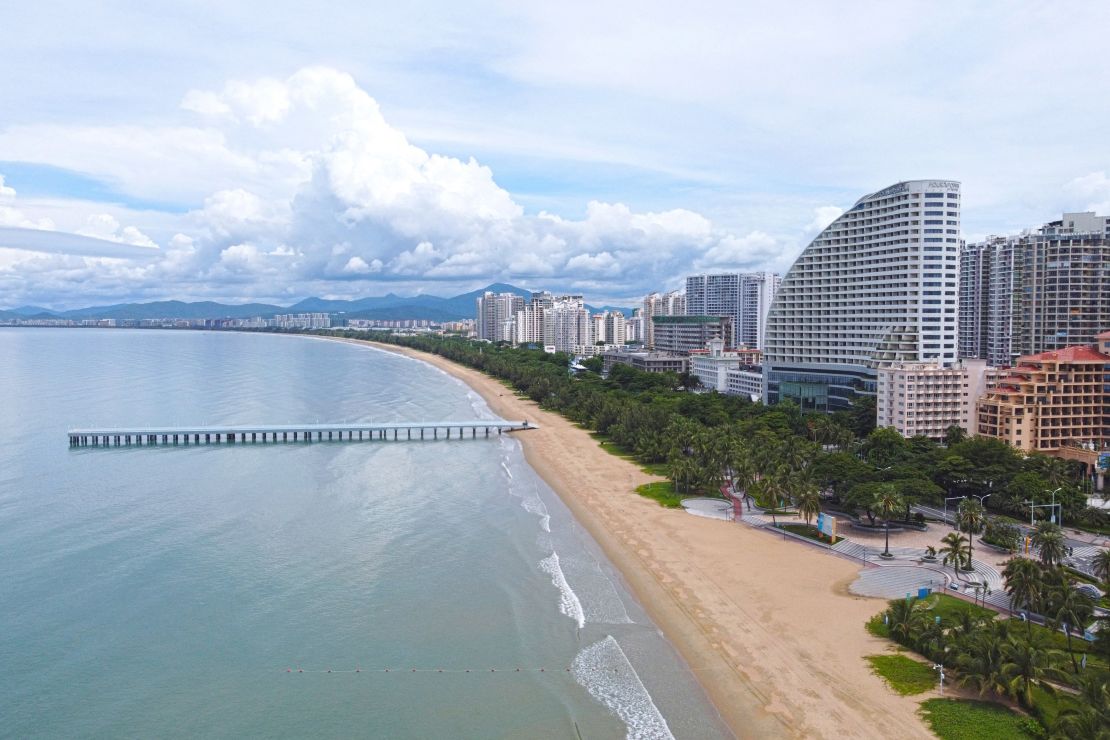This is the weekly edition of CNN’s coronavirus newsletter. Look out for your roundup every Wednesday. If you haven’t subscribed yet, sign up here.
There’s been a lot of talk about Covid-19 booster shots in recent weeks.
It makes sense – with colder months just around the corner in the northern hemisphere, public health authorities across the world are getting ready for a potential spike in coronavirus cases.
Getting people at risk of severe disease boosted is a big part of the plan. But guidance on who, when and how depends largely on who you ask.
Let’s start with the basics: All adults should have had their first booster by now. The data shows clearly that an extra shot of an mRNA vaccine increases protection, including against severe disease.
“If you are 18 and older and have not yet had any vaccines beyond your primary vaccination, you should get your booster now,” said CNN medical analyst Dr. Leana Wen, an emergency physician and professor of health policy and management at the George Washington University Milken Institute School of Public Health.
Although the US Centers for Disease Control and Prevention (CDC) does recommend boosters for children 5 and older, Dr. Wen said the data is “much less compelling” than for adults.
When it comes to the second booster, the picture gets a bit more complicated.
Dr. Wen told CNN’s Deblina Chakraborty that the decision about who should get a booster and how often is not straightforward, because scientists and public health experts are not always in agreement on the purpose of Covid-19 vaccinations.
“Some believe that the goal of these vaccines is to prevent severe illness, and as long as the vaccines continue to protect against hospitalization and death, additional boosters aren’t needed. Others point to vaccines also being able to reduce symptomatic illness. That effect is not as long-lasting as the protection against severe illness, so those who hold this second point of view would advocate for more frequent boosters,” she said.
The guidance differs across the world. The World Health Organization (WHO) recommends a first booster for all adults and second booster for those most at risk.
In the United States, anyone over the age of 50 is currently eligible for and encouraged to get two booster doses. There are some exceptions: Younger people who are moderately or severely immunocompromised can also get the second booster, because they are at greater risk of severe illness or death if they contract Covid-19, according to the CDC.
In England, the current plan is to offer second boosters to people 50 and over as well as younger people who are at risk, front line health and social care workers or those who care for or live with an immunosuppressed person.
The European Centre for Disease Prevention and Control (ECDC) and the European Medicines Agency (EMA) changed their guidance last month, lowering the age criteria for additional boosters from 80 to 60.
In Australia, anyone aged 30 and above can chose to have the second booster.
But as Western countries ponder additional doses, low-income countries are still struggling to vaccinate those who need it the most.
According to the WHO, only 28% of older people and 37% of health care workers in low-income countries have received their primary course of vaccines and most have not received booster doses.
YOU ASKED. WE ANSWERED.
Q: What should parents do if their kids get Covid-19 in school?
A: According to the US CDC, people who contract Covid-19 should isolate themselves for five days before returning to public settings – such as schools – with a well-fitting mask for the next five days.
If your child was exposed to someone with Covid-19, but is up to date with all vaccinations, no isolation is required unless they develop symptoms. Instead, they can continue attending school, wearing a mask for 10 days and getting tested after five days.
Send your questions here. Are you a health care worker fighting Covid-19? Message us on WhatsApp about the challenges you’re facing: +1 347-322-0415.
READS OF THE WEEK
Long Covid could be the “next public health disaster”
There’s no test for long Covid. There’s no specific drug to take or exercises to do to ease its symptoms. There isn’t a consensus on what long Covid symptoms are, and some doctors even doubt that it’s real.
But millions of people across the world suffer from the condition, which researchers say has the potential to be “the next public health disaster in the making.”
In the US, between 7.7 million to 23 million are thought to have long Covid.
The Biden administration released two reports last week as part of a whole-government initiative to prevent, detect and treat long Covid.
According to a study published in The Lancet journal on Thursday, one in eight adults with Covid-19 may have lingering symptoms months after the initial infection, but as data was collected before the dominance of Omicron, it is unknown if the results would be the same today.
The study said research into long Covid has been hampered by “an absence of a consensus on the prevalence and nature of the post-Covid-19 condition,” adding that there is a need for more data “on the scale and scope of the problem to support the development of an adequate health-care response.”
They came for sand and sun. Now, they’re trapped by China’s latest lockdown
Famed for its sandy beaches, luxury resorts and shopping, the city of Sanya – known as China’s Hawaii – on Hainan island is a popular tourist destination.
But what for many started as a tropical getaway has quickly become a nightmare, because of China’s strict zero Covid policy. Around 80,000 tourists are now trapped in the city after the Sanya government imposed a lockdown over a coronavirus outbreak on Saturday.
On Monday, Sanya airport canceled all 418 of its flights. Officials have not said when measures will be lifted, but visitors wishing to leave must show five negative Covid tests over a week.
Driven by the currently dominant Omicron BA.5.1.3 subvariant, more than 1,200 people have been infected in Sanya since the beginning of the month, with over 200 more being infected in other cities and counties in Hainan.

Under 60, healthy and fully jabbed? You’re in a “good place” with Covid
If you are up to date on all your Covid-19 vaccinations, don’t have any health conditions and are under the age of 60, then you’re very unlikely to become severely ill with Covid-19, according to data from New York’s largest health provider.
The data from Northwell Health shows that 80% of the nearly 2,000 people hospitalized there for Covid-19 from May to July were over 60, and nearly 90% had underlying health problems. Vaccination status was also critically important; most of the hospitalized patients were not up to date on their Covid-19 vaccinations, while those who were but still ended up in hospital were mostly over 65.
Dr. William Schaffner, a vaccine adviser to the US Centers for Disease Control and Prevention, said “you’re going to be in a pretty good place” if you’re young, healthy and vaccinated.
People aged between 5 and 50 are up to date with their vaccines if they’ve had two shots of the Pfizer or Moderna vaccine plus a booster. For over 50s, it is the two shots and two boosters.
TOP TIP
Paxlovid shouldn’t be avoided out of fear of rebound
If you are categorized as vulnerable and get infected with Covid-19, you will likely be eligible for Paxlovid, according to the CDC.
Dr. Anthony Fauci and President Joe Biden have both suffered from Paxlovid rebound, but CNN’s medical analyst, Dr. Wen, said people should consider the possibility of it as a side effect of the medication.
“The possibility of this side effect is not a reason to avoid a medication that is highly effective at reducing severe illness,” she said, adding that both Fauci and Biden did not get severely ill, which is a “success story.”
It can reduce the likelihood of hospitalization or dying by nearly 90%, so Dr. Wen recommends talking to your physician to know if you are eligible or not for it even if you haven’t contracted Covid-19.
LISTEN TO THE PODCAST
Climate change has long been an existential threat, but for many young people, government inaction and increasing natural disasters are now taking a mental toll. Psychologists describe this phenomenon as climate anxiety.
This week on Chasing Life, Dr. Sanjay Gupta learns how to manage climate anxiety and how to find joy amidst the darkness. Listen here.

















